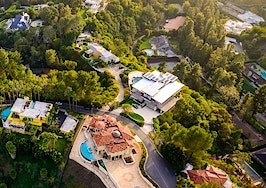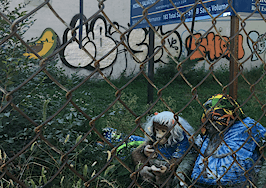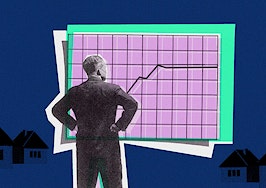- Single-family homes in wealthier, predominately white neighborhoods have appreciated, on average, by 21 percent since the recession.
- Meanwhile, single-family homes in predominately black neighborhoods are twice as likely to have homes that are worth less post-recession.
Most economists would agree that we’ve fully recovered from the recession — the national economy is stable, jobs growth is robust and the majority of homes have regained or exceeded their 2007 pre-recession value.
But different metros have recovered at varying rates, and some have actually fared worse, as evidenced in The Washington Post’s The Divided American Dream, an in-depth and multi-part feature about the connection between race, class and the ability to build long-term wealth through homeownership.
Four WaPo reporters dove deep into Black Knight Financial Services home value data from 2004-2015, and their findings revealed that single-family homes in wealthier, predominately white neighborhoods have appreciated, on average, by 21 percent.
Meanwhile, single-family homes in predominately black neighborhoods are twice as likely to have homes that are worth less post-recession.
“The findings of The Post’s analysis underscore another way in which the economy, despite its improvements over the past several years, continues to deliver better returns for some Americans than others,” wrote WaPo reporter Kat Downs.
“In good times, housing converts income into wealth. It turns a paycheck into the next generation’s inheritance. But in neighborhoods that haven’t weathered the past decade as well, homes have become a source of debt, a physical trap and an obstacle to life’s other goals,” she added.
Home values along race and class divides
In addition to an interactive infographic, the WaPo team produced four long-form pieces that focused on San Francisco, Atlanta, Charlotte, North Carolina and Washington, D.C., four major metro areas that are experiencing gentrification.

The difference in home values between North and South DeKalb County. Source: The Washington Post’s ‘The Divided American Dream’
In DeKalb County (Atlanta), the difference in home value appreciation between the predominately white northside and the predominately black southside is stark: Homes in North Dekalb have appreciated by as much as 40 percent while homes in South DeKalb have depreciated by 40 percent.
For example, one homeowner says the home he bought in 2005 for $269,000 was recently valued at $189,000 when he tried to refinance his mortgage.
“It just does not make sense,” he said. “You’ve got doctors, lawyers, teachers, all kinds of professional people, retired military like myself, who’ve done everything right — everything right — and it never seems to work out in our favor.”

San Francisco vs. Stockton / Source: The Washington Post’s ‘The Divided American Dream’
In the bustling tech metropolis of San Francisco, home values have skyrocketed as much as 96 percent to an average of $2,247,333. Meanwhile, homeowners in Stockton have taken quite the hit: Their homes have depreciated by 21 percent since 2005.
At one point in time, residents in San Francisco and Stockton had similar average incomes and the home value gap was much “narrower,” said Jeff Michael, director of the Center for Business and Policy Research at the University of the Pacific in Stockton.
But, as San Francisco became a tech mecca, its income growth began to outpace the income growth in Stockton, where the rich agricultural market was waning. Furthermore, Stockton residents could no longer afford the homes they got with subprime loans during the city’s building boom.
That has left most residents with homes that are underwater. It has also left them having to weigh the choice between keeping their home or becoming a renter.
In Washington, D.C. and Charlotte, North Carolina, the stories are the same — gentrification matched with racial and wealth inequality has put minority communities behind the eight ball, while wealthier, white communities continue to thrive.
“Many of the disparities reflect existing divisions in America that have been widened by the housing turmoil,” Downs concluded. “The bubble was a broadly shared experience — values rose rapidly in communities across the country in the early 2000s — but what happened next was not.”
“The result is that this housing cycle — spanning the bubble, bust and recovery — has left vastly different marks on communities across the country. For some families and neighborhoods, the legacy will linger for years. For others, its memory has already faded.”
How have home values in your city changed?
Here are the home value changes in the nation’s 50 state capitals between 2004 and 2015:
-
- Montgomery, Alabama: -1 percent to $137,478
- Juneau, Alaska: +38 percent to $368,986
- Phoenix, Arizona: +16 percent to $237,493
- Little Rock, Arkansas: +12 percent to $170,524
- Sacramento, California: -4 percent to $333,755
- Denver, Colorado: +32 percent to $350,694
- Hartford, Connecticut: +3 percent to $241,137
- Dover, Delaware: +10 percent to $209,527
- Tallahassee, Florida: +4 percent to $180,996
- Atlanta, Georgia: +1 percent to $194,798
- Honolulu, Hawaii: +56 percent to $716,727
- Boise, Idaho: +23 percent to $207,363
- Springfield, Illinois: +16 percent to $171,193
- Indianapolis, Indiana: +12 percent to $173,854
- Des Moines, Iowa: +13 percent to $185,635
- Topeka, Kansas: +13 percent to $142,674
- Frankfort, Kentucky: +10 percent to $228,120
- Baton Rouge, Louisiana: +32 percent to $190,094
- Augusta, Maine: Data not available
- Annapolis, Maryland: +12 percent to $507,942
- Boston, Massachusetts: +18 percent to $419,084
- Lansing, Michigan: -8 percent to $145,748
- Saint Paul, Minnesota: -19 percent to $140,944
- Jackson, Mississippi: +18 percent to $220,747
- Jefferson City, Missouri: Data not available
- Helena, Montana: +54 percent to $224,201
- Lincoln, Nebraska: +16 percent to $164,882
- Carson City, Nevada: -2 percent to $240,747
- Concord, New Hampshire: unchanged at $228,489
- Trenton, New Jersey: -3 percent to $280,428
- Santa Fe, New Mexico: +9 percent to $313,175
- Albany, New York: +25 percent to $224,752
- Raleigh, North Carolina: +19 percent to $233,566
- Bismarck, North Dakota: +91 percent to $284,378
- Columbus, Ohio: +10 percent to $186,390
- Oklahoma City, Oklahoma: +30 percent to $258,070
- Salem, Oregon: +30 percent to $203,627
- Harrisburg, Pennsylvania: +19 percent to $190,521
- Providence, Rhode Island: -4 percent to $268,761
- Columbia, South Carolina: +12 percent to $238,792
- Pierre, South Dakota: +48 percent to $268,491
- Nashville, Tennessee: +31 percent to $222,222
- Austin, Texas: +53 percent to $283,017
- Salt Lake City, Utah: +50 percent to $282,198
- Montpelier, Vermont: +43 percent to $249,893
- Richmond, Virginia: +17 percent to $232,750
- Olympia, Washington: +24 percent to $249,130
- Charleston, West Virginia: +22 percent to $142,690
- Madison, Wisconsin: +12 percent to $232,243
- Cheyenne, Wyoming: +34 percent to $230,629
Want to see the data for your specific ZIP code? View WaPo’s full study here.
















